The PDC, a catalyst for change
An updated permaculture design course, offering a powerful life-enhancing experience.
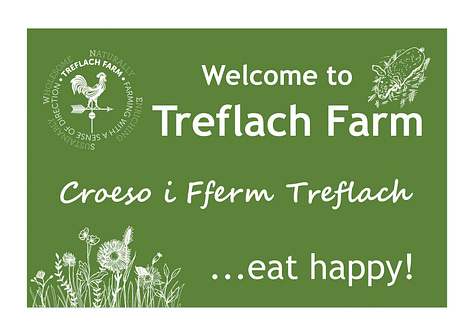
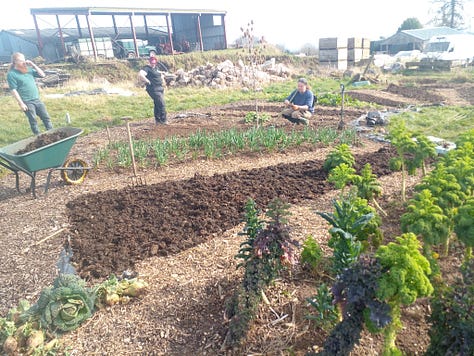

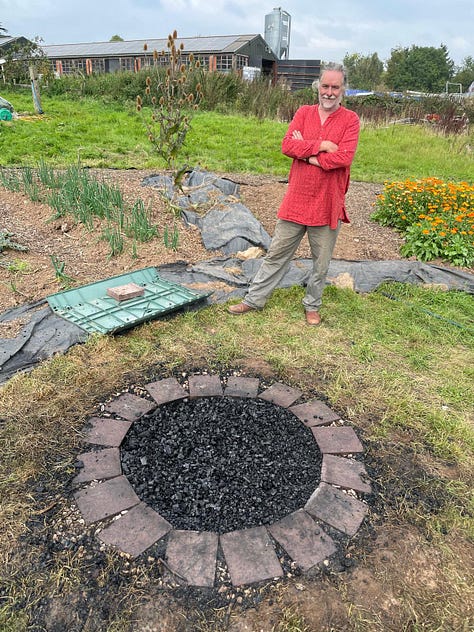



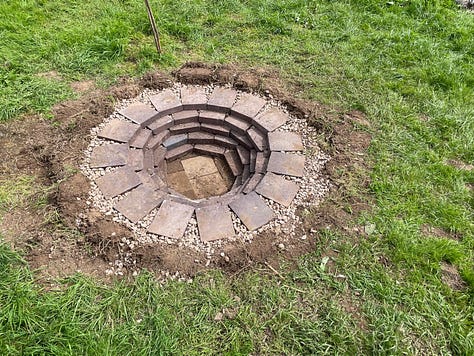

Permaculture Design Courses — for 2025 and 2026
6-day residential course + online support (June 30th - July 5th)
Three days at Lake Vyrnwy: lake-side house retreat
Three days at Treflach, a regenerative farm
Prepare with an online introduction session, via Zoom
Support to complete your permaculture design outline
Personal tutorial with a key teacher
Since 2006 our team has delivered in the region of 50 successful PDCs, after a short hiatus we are ready to relaunch with a series of courses planned for 2025 and 2016. We are bringing this lifetime of experience together for this series of amazing courses!
Spend your first three days in an off-grid retreat above stunning Lake Vyrnwy
Experience permaculture practice, on-farm and community garden scale
Visit the woods, green woodworking, woodland management, and meet the artisans.
Background: The Permaculture Design Course (PDC) was originally conceived as an intensive crash course to immerse participants in the permaculture mindset of planning and designing. Packed into 72 hours of study, it was designed by founder Bill Mollison to share a wealth of vital information rapidly and effectively through peer-to-peer learning. This format emerged from the urgent realisation that these ideas needed to spread far and wide, preparing for a global wake-up moment that would demand a new way of thinking and living.
Traditionally, the PDC was often delivered as 12 days of saturation learning—a vibrant mix of theory, hands-on practical sessions, slideshows, talks, and site visits, crammed into less than a fortnight. The course was designed to create a profound shift in participants’ perceptions, offering them a new lens through which to see the world. This immersive experience, often held in rustic settings like yurts in fields, allowed participants to live and breathe permaculture, leaving a lasting impact that stayed with them long after the course ended. This format has proven highly effective, and while it remains a powerful approach, the times have changed, and so have the needs and expectations of learners.
Today, the permaculture movement has evolved. The pioneering days are behind us, and the audience has broadened there is now a huge resource of videos, books and blogs online connecting you to real-life projects around the globe
Many people are increasingly disconnected from the natural realm. For those immersed in urban lifestyles, permaculture can feel abstract and distant, we will re-connect you to the natural world and make you feel part of this wider community working hard to bring about positive change in the world.
Our upcoming Permaculture Design Courses in 2025 and 2026 are designed with this evolution in mind. Held across two inspiring locations in Powys, Wales—a serene mountain retreat and a thriving organic farm closer to town—these courses will blend the timeless wisdom of permaculture with fresh approaches to learning. Whether you’re new to permaculture or looking to deepen your understanding, this course will equip you with the tools, knowledge, and inspiration to design regenerative systems and live in harmony with the natural world.
Join us for an experience that will shift your perspective and empower you to create meaningful change in your life and community.
What does a Permaculture Design Course (PDC) cover?
Typically the course covers a wide range of topics and skills aimed at teaching students how to design sustainable and regenerative systems.
Specific content may vary depending on the instructor, their specialism and experience and the location.
Key components of a Permaculture Design Course include:
1. Introduction to Permaculture - Listening to nature
Definition and history of permaculture
Ethics of permaculture: Earth Care, People Care, and Fair Share
Principles of permaculture David Holmgren’s 12 principles, Bill Mollison’s principles
The permaculture design process
2. Ecological Principles
Understanding ecosystems and natural patterns
Energy flows and nutrient cycles
Succession and ecological niches
Biodiversity and resilience
3. Design Methods and Tools
Site analysis and assessment
Reading the Landscape
Mapping and design tools (e.g., zone and sector analysis, input/output analysis)
Design frameworks and methodologies
4. Soil Health and Regeneration
Soil composition and structure
Soil biology and microbiology
Techniques for building and maintaining healthy soil (e.g., composting, mulching, cover cropping)
Erosion control and land restoration
5. Water Management
Understanding the water cycle
Water harvesting techniques (e.g., swales, rain gardens, ponds)
Grey water and black water systems
Irrigation strategies and water conservation
6. Plants and Trees in Permaculture
Plant identification and uses
Agroforestry and food forests
Polycultures and guilds
Perennial vs. annual plants
7. Animals in Permaculture
- Integrating animals into the system
- Roles of animals in ecosystem management (e.g., grazing, pest control, fertilization)
- Designing for animal welfare and productivity
8. Climate and Microclimates
- Understanding global and local climates
- Creating and utilizing microclimates
- Designing for climate resilience and adaptation
9. Built Environment and Infrastructure
- Sustainable building materials and techniques
- Passive solar design and energy-efficient structures
- Waste management and recycling systems
- Renewable energy systems (e.g., solar, wind, biogas)
10. Social Permaculture
- Community building and collaboration
- Cultural emergence, permaculture and people
- Decision-making processes and conflict resolution
- Economic systems and alternative currencies
- Education and outreach
11. Food Systems and Agriculture
- Organic and regenerative farming practices
- Urban agriculture and gardening
- Seed saving and plant propagation
- Food preservation and storage
12. Design Projects and Practical Applications
- Hands-on design exercises and projects
- Case studies of successful permaculture designs
- Implementation and maintenance strategies
- Monitoring and evaluation
13. Ethics and Philosophy
- Deepening understanding of permaculture ethics
- Exploring the philosophical underpinnings of permaculture
- Personal and societal transformation
14. Final Design Project
- Students complete a final design project that integrates all the concepts and skills learned during the course
- Presentation of the design to peers and instructors for feedback
15. Certification
Upon completion of the course, students are awarded a Permaculture Design Certificate, an internationally recognized Standard.
Registration with the Permaculture Association (Britain)
Additional Components
Field trips to permaculture sites — we will visit a woodland recently acquired by artisanal craft and wood workers.
Guest lectures from experts in various fields. We draw in a wealth of knowledge from other highly experienced practitioners.
Networking opportunities with other permaculture practitioners and link to the Permaculture Association (Britain)
These components collectively provide a comprehensive foundation for designing and implementing sustainable systems that work in harmony with nature.


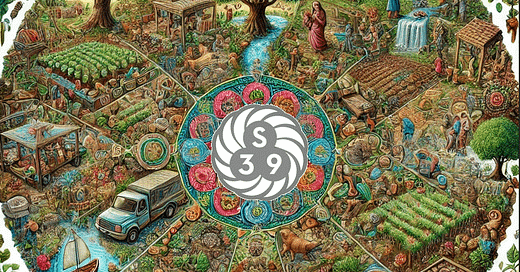




Awesome stuff! I can't wait to come this year!
I have been volunteering at Treflach since June of last year, Steve is such a warm, generous and compassionate man, with a rich wealth of knowledge on permaculture, he has dedicated his life to this.
His passion really shows and we'll all get so much from this learning experience! :D